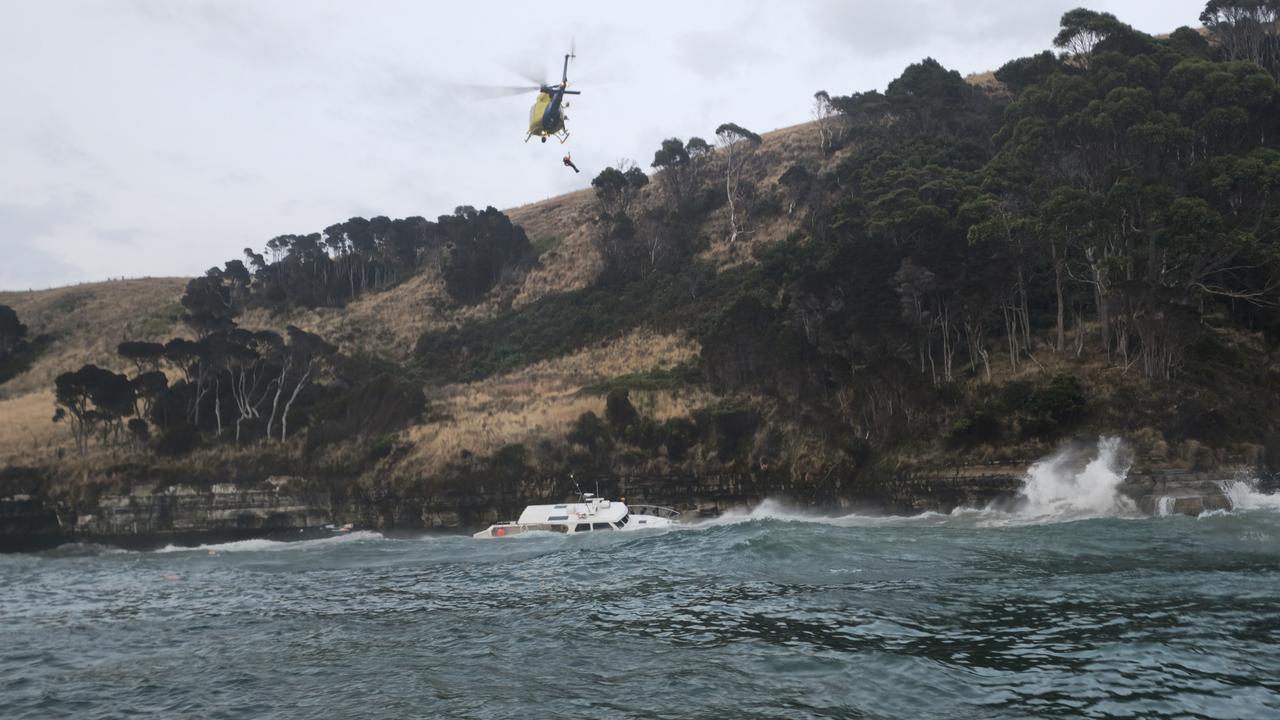“There are joeys dying”: Tasmania’s roadkill crisis in the spotlight on World Environment Day
More than 500000 animals are killed on Tasmania’s roads every year. Find out how RACT is teaming up with Bonorong to try and combat the crisis.
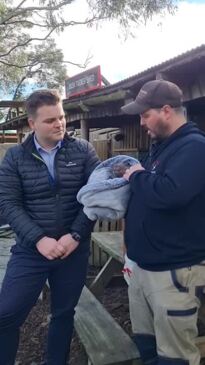
Tasmania
Don't miss out on the headlines from Tasmania. Followed categories will be added to My News.
Seventh-month old orphaned wombat Bingo was found trying to climb into her deceased Mum’s pouch on the side of the road.
Bonorong Sanctuary director Greg Irons said it was likely her Mum was hit close to the time she was found on the Midland Highway near Stonor as Bingo was in surprisingly good condition.
Mr Irons said Bingo was “one of the lucky ones” that was found in time.
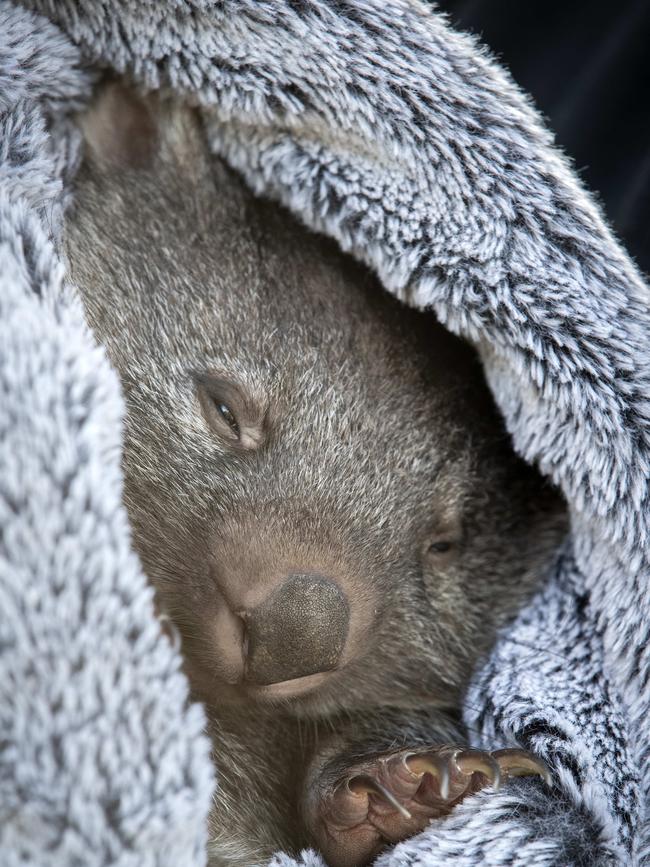
“She’s just one of so many, unfortunately,” he said.
“All over the state every single night there are joeys dying of trauma, of starvation and of the cold.
“As well as parents suffering after being hit by cars,” Mr Irons said.
Bingo will be released back into the wild after full rehabilitation.
Tasmania’s roadkill statistics are some of the worst in the country, with over 500,000 animals killed every year.
Mr Irons said although wallabies and wombats were the most common cases there was no Tasmanian animal that Bonorong hadn’t rescued from a road interaction.
He said the numbers of orphaned joeys needing rescue increases every year and it was time for Tasmanians to analyse their behaviour on the road to prevent deaths.
He said the numbers were just as high during the COVID-19 pandemic which showed the problem was not tourist drivers.
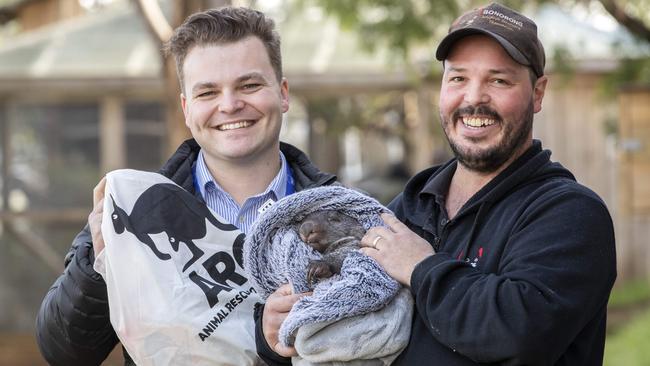
Mr Irons said prevention is better than cure — and urged people not only to slow between dusk and dawn, but plan trips to avoid driving between those times.
RACT communications manager Ben Hansen said based on an insurance study they estimate that around 3900 insurance claims will be made by the end of this year in relation to interactions with wildlife on the road.
These interactions represent up to $14 million in damages.
“People quite obviously understand the environmental impacts when it comes to road kill on our roads, but they often don’t understand that there are significant financial impacts as well,” Mr Hansen said.
Mr Hansen said the most common areas for insurance claims relating to animal incidences over the past 6 years are on Tasmania’s three regional highways; Tasman Highway, Bass Highway and Midland Highway.
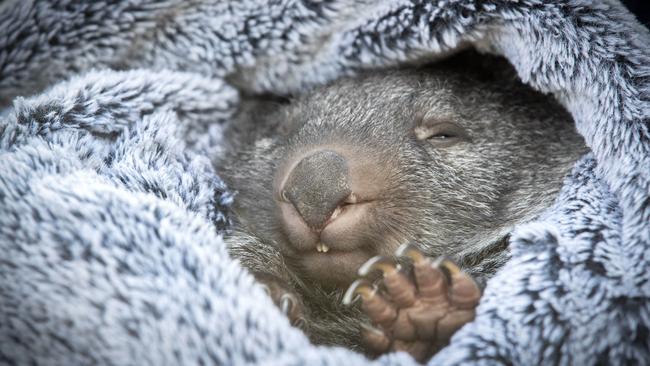
RACT is teaming up with Animal Rescue Cooperative to provide 100 animal rescue kits to Bonorong to distribute to people who have undergone Bonorong’s free basic wildlife rescue training.
Along with a user guide the kits have a blanket, scissors, a safety vest and a pouch to transport the animal in.
“Just having the basic gear in your vehicle often means you can do the rescue rather than waiting for a rescue to get there,” Mr Irons said.
If you come across injured wildlife, call Bonorong’s 24-hour Wildlife Rescue Hotline on 0447 264 625.
More Coverage
Originally published as “There are joeys dying”: Tasmania’s roadkill crisis in the spotlight on World Environment Day




